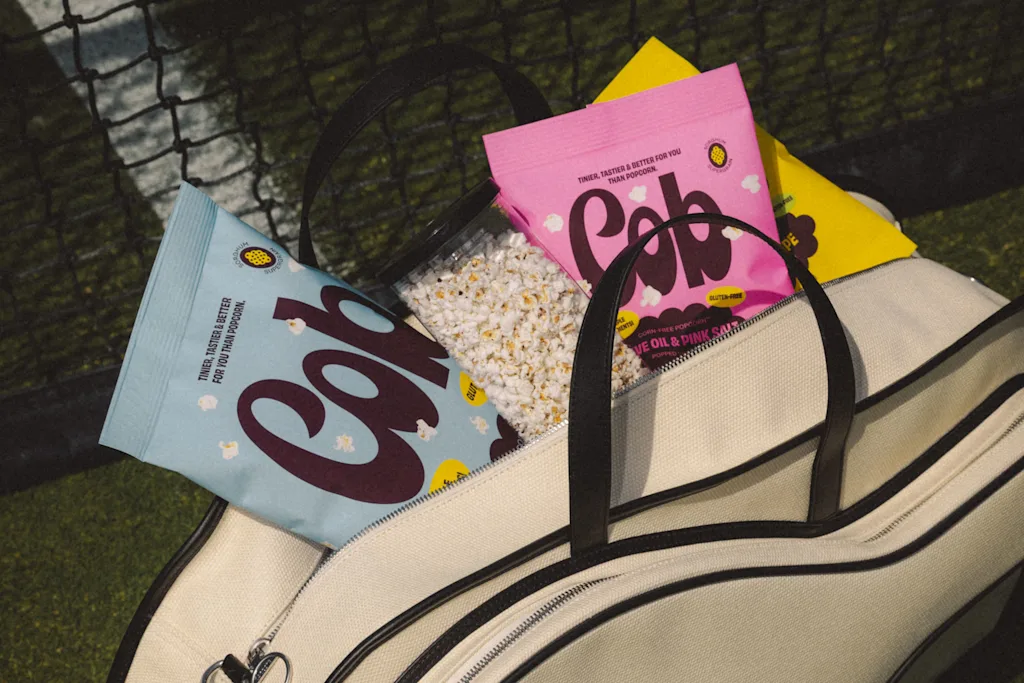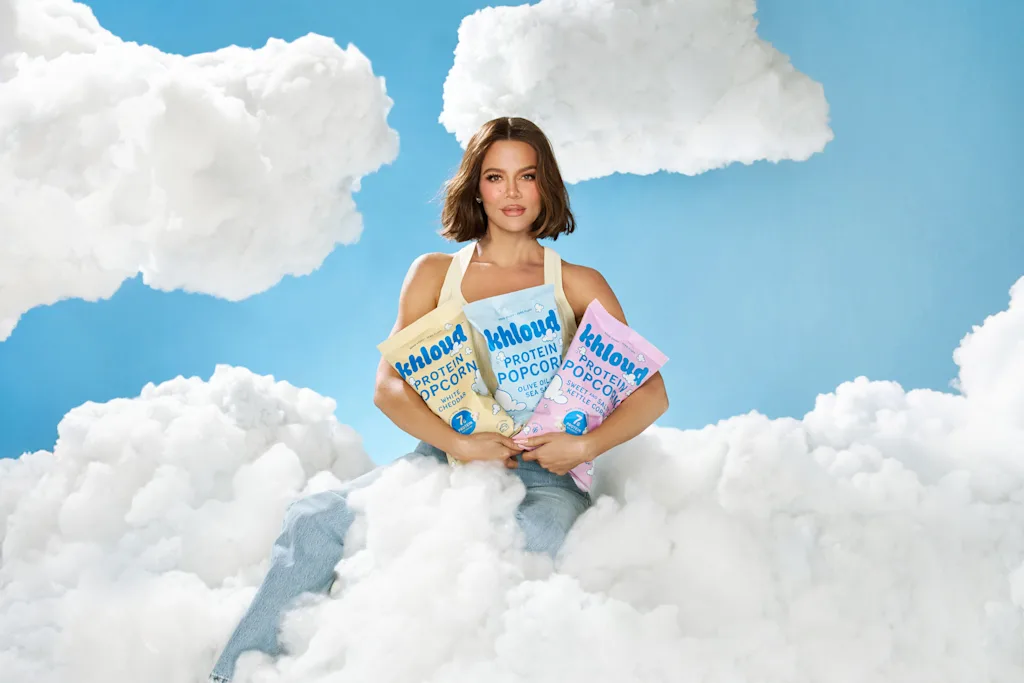
This weekend, tennis star Novak Djokovic is serving snackers something a little different: a new sorghum-based, corn-free “popcorn” brand called Cob, which will compete in the same aisle as SkinnyPop and Orville Redenbacher’s. The popcorn’s launch coincides with the announcement of a $5 million seed round for the startup that’s led by Djokovic.
Popcorn has become a particularly alluring category for celebrities over the past few years. New entrants have included Khloud Protein Popcorn backed by reality TV star Khloé Kardashian; singer Luke Bryan’s Boldly Grown Popcorn; and Rob’s BackStage Popcorn, cofounded by the pop rock band the Jonas Brothers.
Why popcorn?
What they are nibbling on is a growing market that’s welcoming to new brands that promote bolder flavors, avoid canola oil and artificial butter flavors and colors, and include claims of higher protein or low-carb formulations. The U.S. popcorn market grew by 31% to $3.5 billion over a five-year period through 2024, according to market researcher Mintel, and is forecasted to be valued at $3.84 billion by 2029.
“I wanted to join the brand as cofounder, as well as lead the seed round, to give other investors confidence in our vision,” says Djokovic in an emailed statement.

Cob is a gluten-free snack that’s made from the grain sorghum, which is naturally rich in fiber, iron, and plant-based protein. The brand was originally conceptualized and created by entrepreneur Jessica Davidoff, who was inspired to explore snacking alternatives that could be served to her son, who suffers from an allergy to corn. “My eyes were open to just how vast corn was in the American food system,” Davidoff tells Fast Company.
That led her to visit a local grocery store in New York that promoted international ingredients and start testing snacks that could be made in the kitchen that were similar to popcorn, but without the key base ingredient. Davidoff felt that sorghum delivered the best taste from all the alternatives she tested. “It offers this new option for people who really like popcorn but want to take the nutrition component up a notch,” she says.
Cob will be sold direct-to-consumer through online channels including the brand’s website, at a price of $59.99 for a 24-pack of 1-ounce single-serve snack packs. The initial launch features four flavors, including Mediterranean herb, and olive oil and pink salt. Davidoff says the brand intends to launch more sorghum-based products in the future. Djokovic will serve as an adviser on ingredients, formulations, and product line extensions, as well as support marketing and future brand collaborations.
A growing trend
Healthier popcorn brands began to emerge as a force in the category after SkinnyPop launched in 2010. The brand’s pitch was that it featured only three ingredients: popcorn, sunflower oil, and salt. This streamlined ingredient list resonated with snackers, and sales quickly soared. The brand’s parent company, Amplify, was later acquired by candymaker Hershey for $1.6 billion in 2017.
Since then, newer popcorn brands have promoted their use of coconut, olive, and avocado oils and have avoided artificially added butters, which are most associated with the microwavable brands. “For people who really like to snack, popcorn is only 30 calories per cup,” says New York-based dietitian Samantha Cassetty, noting that the calorie count is less than what’s found in most other crunchy snacks.
Brands like Cob have also promoted their alignment with GLP-1, one of the buzziest new trends in food as consumers increasingly embrace GLP-1 weight-loss medications like Ozempic and Wegovy. Cob says that sorghum is a resistant starch, meaning it can naturally boost a body’s GLP-1 to make a snacker feel fuller for longer. “All of the CPG [consumer packaged goods] companies are looking for ways to target that consumer who is snacking less,” Cassetty says.
Kardashian’s Khloud voraciously promotes the nutritional claim of 7 grams of protein per serving that’s from a blend of milk protein isolate. The popcorn brand was created to tap into three big trends: Protein snacks are growing three times faster than the market, “protein” is the most trending ingredient among millennial and Gen Z consumers, and popcorn is the fastest-growing salty snack category, according to Khloud CEO Jeff Rubenstein.

For years, protein-packed foods tended to come in the form of bars and shakes, frequently promoted to gym-obsessed men, Rubenstein says. “We can do this more femininely,” he says, noting the brand features more vibrant packaging that includes soft pink and blue. “We can attract a different audience to protein.”
The brand debuted in April with a 60-day retail exclusive at Target, and by January will be sold in more than 25,000 retail stores including Kroger and Walmart. Rubenstein says Khloud has an authentic founder story with Kardashian: “She had an entire closet in her house that was dedicated to just snacks. She made Khloud a functional snack that is fashionable.”
Djokovic was drawn to the popcorn category because while he prefers home-cooked meals with simple ingredients, the pro athlete travels a lot with a very hectic schedule. “At Cob, we’re creating packaged foods with the same ingredients and recipes we’d use in our own kitchens to allow people to eat well even when they’re away from their kitchens,” he says.
Celebrities have craved snacks as an investment opportunity because similar to the beauty category, they can sell high volumes and drive more steady, repeatable purchasing patterns than apparel or jewelry. Snacks can also generate gross profit margins of 40% for manufacturers, according to Alex Kushnir, a real and consumer partner at consultancy Baringa, who notes, “It happens to be one of the more profitable categories in food.”